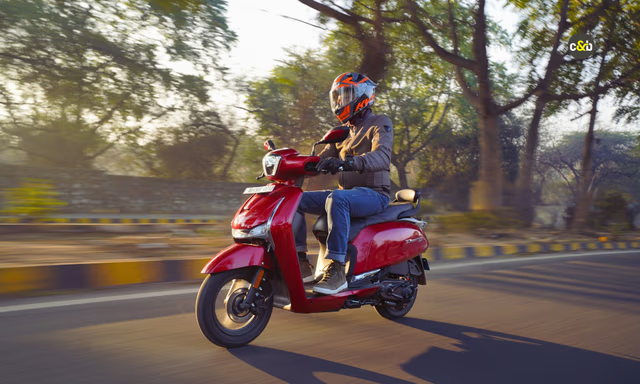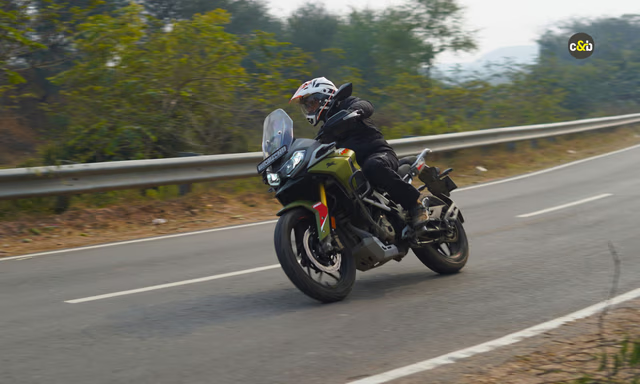VW Reaches Record $14.7 Billion Settlement In Dieselgate Cases
car&bike Team
1 min read
Oct 26, 2016, 02:49 AM

Key Highlights
- The settlement is for regulators and owners of 475,000 diesel vehicles
- $10.033 billion will be spent on buybacks and owner compensation
- $4.7 billion will be spent to offset excess emissions
A U.S. federal judge on Tuesday approved Volkswagen AG's record-setting $14.7 billion settlement with regulators and owners of 475,000 polluting diesel vehicles, and the German automaker said it would begin buying back the vehicles in mid-November.
The action by U.S. District Judge Charles Breyer in San Francisco marked the latest development in a scandal that has rocked VW since it admitted in September 2015 using secret software in its diesel cars to cheat exhaust emissions tests and make them appear cleaner than they really were.
Under the settlement first announced in June, Volkswagen agreed to spend up to $10.033 billion on the buybacks and owner compensation and $4.7 billion on programs to offset excess emissions and boost zero-emission vehicle infrastructure and other clean vehicle projects.
The affected vehicles emit up to 40 times legally allowable pollution levels. Volkswagen may also be allowed to repair vehicles if regulators approve fixes. It represented the largest civil settlement worldwide ever reached with an automaker over allegations of misconduct and fraud toward vehicle owners.
In total, Volkswagen has agreed to date to spend up to $16.5 billion in connection with the diesel emissions scandal, including payments to dealers, states and attorneys for owners. The scandal rattled VW's global business, harmed its reputation and prompted the ouster of its CEO.
The world's second-largest automaker still faces billions more in costs to address 85,000 polluting 3.0 liter vehicles and U.S. Justice Department fines for violating clean air laws. It also faces lawsuits from at least 16 U.S. states for additional claims that could hike the company's overall costs.
Breyer turned away objections from owners who thought the settlement did not provide enough money, saying the agreement "adequately and fairly compensates" owners. In addition to the pre-scandal "trade in" value of the vehicle, owners will also receive $5,100 to $10,000 in additional compensation. "Given the risks of prolonged litigation, the immediate settlement of this matter is far preferable," Breyer wrote.
Volkswagen agreed to make up to $1.21 billion in payments to 652 U.S. VW brand dealers and $600 million to 44 U.S. states to address some state claims. To date, nearly 340,000 owners have registered to take part in the settlement, and only about 3,500 owners have opted out. Volkswagen must fix or buy back 85 percent of the 475,000 vehicles under the agreement within two years or face additional costs.
Under the Justice Department agreement, VW will provide $2 billion over 10 years to fund programs to promote construction of electric vehicle charging infrastructure, development of zero-emission ride-sharing fleets and other efforts to boost sales of cars that do not burn petroleum. VW also agreed to put up $2.7 billion over three years to enable government agencies and agencies on Native American tribal lands to replace old buses or to fund infrastructure to reduce diesel emissions and award states about $600 million.
Volkswagen spokeswoman Jeannine Ginivan said the automaker expects to begin buying back vehicles in mid-November. The automaker has hired 900 people, including one to be stationed at each dealership, to handle buybacks.
The action by U.S. District Judge Charles Breyer in San Francisco marked the latest development in a scandal that has rocked VW since it admitted in September 2015 using secret software in its diesel cars to cheat exhaust emissions tests and make them appear cleaner than they really were.
Under the settlement first announced in June, Volkswagen agreed to spend up to $10.033 billion on the buybacks and owner compensation and $4.7 billion on programs to offset excess emissions and boost zero-emission vehicle infrastructure and other clean vehicle projects.
The affected vehicles emit up to 40 times legally allowable pollution levels. Volkswagen may also be allowed to repair vehicles if regulators approve fixes. It represented the largest civil settlement worldwide ever reached with an automaker over allegations of misconduct and fraud toward vehicle owners.
In total, Volkswagen has agreed to date to spend up to $16.5 billion in connection with the diesel emissions scandal, including payments to dealers, states and attorneys for owners. The scandal rattled VW's global business, harmed its reputation and prompted the ouster of its CEO.
The world's second-largest automaker still faces billions more in costs to address 85,000 polluting 3.0 liter vehicles and U.S. Justice Department fines for violating clean air laws. It also faces lawsuits from at least 16 U.S. states for additional claims that could hike the company's overall costs.
Breyer turned away objections from owners who thought the settlement did not provide enough money, saying the agreement "adequately and fairly compensates" owners. In addition to the pre-scandal "trade in" value of the vehicle, owners will also receive $5,100 to $10,000 in additional compensation. "Given the risks of prolonged litigation, the immediate settlement of this matter is far preferable," Breyer wrote.
Volkswagen agreed to make up to $1.21 billion in payments to 652 U.S. VW brand dealers and $600 million to 44 U.S. states to address some state claims. To date, nearly 340,000 owners have registered to take part in the settlement, and only about 3,500 owners have opted out. Volkswagen must fix or buy back 85 percent of the 475,000 vehicles under the agreement within two years or face additional costs.
Under the Justice Department agreement, VW will provide $2 billion over 10 years to fund programs to promote construction of electric vehicle charging infrastructure, development of zero-emission ride-sharing fleets and other efforts to boost sales of cars that do not burn petroleum. VW also agreed to put up $2.7 billion over three years to enable government agencies and agencies on Native American tribal lands to replace old buses or to fund infrastructure to reduce diesel emissions and award states about $600 million.
Volkswagen spokeswoman Jeannine Ginivan said the automaker expects to begin buying back vehicles in mid-November. The automaker has hired 900 people, including one to be stationed at each dealership, to handle buybacks.
© Thomson Reuters 2016
(This story has not been edited by NDTV staff and is auto-generated from a syndicated feed.)
Latest News
 Jaiveer Mehra | Feb 27, 2026New Tata Tiago EV Spied Testing On Indian Roads: Enhanced Range Incoming?Launched in India in 2022, the Tiago EV received a notable update last year, adding in newer features and some styling tweaks.3 mins read
Jaiveer Mehra | Feb 27, 2026New Tata Tiago EV Spied Testing On Indian Roads: Enhanced Range Incoming?Launched in India in 2022, the Tiago EV received a notable update last year, adding in newer features and some styling tweaks.3 mins read car&bike Team | Feb 27, 2026VLF Mobster 135 Price Hiked As Introductory Offer EndsThe Mobster 135 is now priced at Rs 1.37 lakh (ex-showroom), which marks an increase of Rs 7,000.2 mins read
car&bike Team | Feb 27, 2026VLF Mobster 135 Price Hiked As Introductory Offer EndsThe Mobster 135 is now priced at Rs 1.37 lakh (ex-showroom), which marks an increase of Rs 7,000.2 mins read car&bike Team | Feb 27, 2026New MG plug-in hybrid SUV Spied testing In India AgainMG’s next new launch in the Indian market could be the Wuling Starlight 560-based model that has been spied on test for the second time in India.2 mins read
car&bike Team | Feb 27, 2026New MG plug-in hybrid SUV Spied testing In India AgainMG’s next new launch in the Indian market could be the Wuling Starlight 560-based model that has been spied on test for the second time in India.2 mins read Jaiveer Mehra | Feb 27, 2026Mini Cooper S Victory Edition Bookings Open In IndiaSpecial edition of the Mini hatchback commemorates the brand’s 1965 Monte Carlo Rally victory.1 min read
Jaiveer Mehra | Feb 27, 2026Mini Cooper S Victory Edition Bookings Open In IndiaSpecial edition of the Mini hatchback commemorates the brand’s 1965 Monte Carlo Rally victory.1 min read Girish Karkera | Feb 27, 2026BMW Chairman Oliver Zipse Named 2026 World Car Person of the YearThe award makes him part of a select industry leaders to make the cut.1 min read
Girish Karkera | Feb 27, 2026BMW Chairman Oliver Zipse Named 2026 World Car Person of the YearThe award makes him part of a select industry leaders to make the cut.1 min read car&bike Team | Feb 26, 2026Triumph 350 cc Range India Launch By April 2026Bajaj had confirmed the development of the 350 cc Triumph models back in November, following the GST rate reforms.1 min read
car&bike Team | Feb 26, 2026Triumph 350 cc Range India Launch By April 2026Bajaj had confirmed the development of the 350 cc Triumph models back in November, following the GST rate reforms.1 min read
 Preetam Bora | Feb 24, 2026Hero Destini 110 Review: Simplicity, RefinedThe Hero Destini 110 is a no-nonsense commuter that is simple, comfortable and above all, fuel efficient. In 2026, when buyers are spoilt for choice, is it good enough to consider?1 min read
Preetam Bora | Feb 24, 2026Hero Destini 110 Review: Simplicity, RefinedThe Hero Destini 110 is a no-nonsense commuter that is simple, comfortable and above all, fuel efficient. In 2026, when buyers are spoilt for choice, is it good enough to consider?1 min read Preetam Bora | Feb 23, 2026TVS Apache RTX Road Test Review: Redefining the Entry-Level ADVAfter spending some time with the TVS Apache RTX in traffic, the daily commute, as well as on open highways, one thing becomes clear: the RTX is trying to redefine the entry-level ADV segment. But is it without fault?1 min read
Preetam Bora | Feb 23, 2026TVS Apache RTX Road Test Review: Redefining the Entry-Level ADVAfter spending some time with the TVS Apache RTX in traffic, the daily commute, as well as on open highways, one thing becomes clear: the RTX is trying to redefine the entry-level ADV segment. But is it without fault?1 min read Girish Karkera | Feb 20, 2026Road Test: 2025 VinFast VF7 AWD Sky InfinityFlagship all-electric SUV from the Vietnamese car maker gets most of the basics right.1 min read
Girish Karkera | Feb 20, 2026Road Test: 2025 VinFast VF7 AWD Sky InfinityFlagship all-electric SUV from the Vietnamese car maker gets most of the basics right.1 min read Jaiveer Mehra | Feb 18, 2026New BMW X3 30 Vs Mercedes-Benz GLC 300: Midsize Luxury SUV FaceoffWith the new X3 30, BMW has a direct competitor to the petrol GLC 300, but which is the luxury SUV for you?1 min read
Jaiveer Mehra | Feb 18, 2026New BMW X3 30 Vs Mercedes-Benz GLC 300: Midsize Luxury SUV FaceoffWith the new X3 30, BMW has a direct competitor to the petrol GLC 300, but which is the luxury SUV for you?1 min read Jafar Rizvi | Feb 15, 2026Maruti Suzuki Victoris: Long-Term Review - Report 1The Victoris is Maruti’s latest offering for the Indian market, and after spending some time with it, here are a few early impressions.1 min read
Jafar Rizvi | Feb 15, 2026Maruti Suzuki Victoris: Long-Term Review - Report 1The Victoris is Maruti’s latest offering for the Indian market, and after spending some time with it, here are a few early impressions.1 min read





























































































































